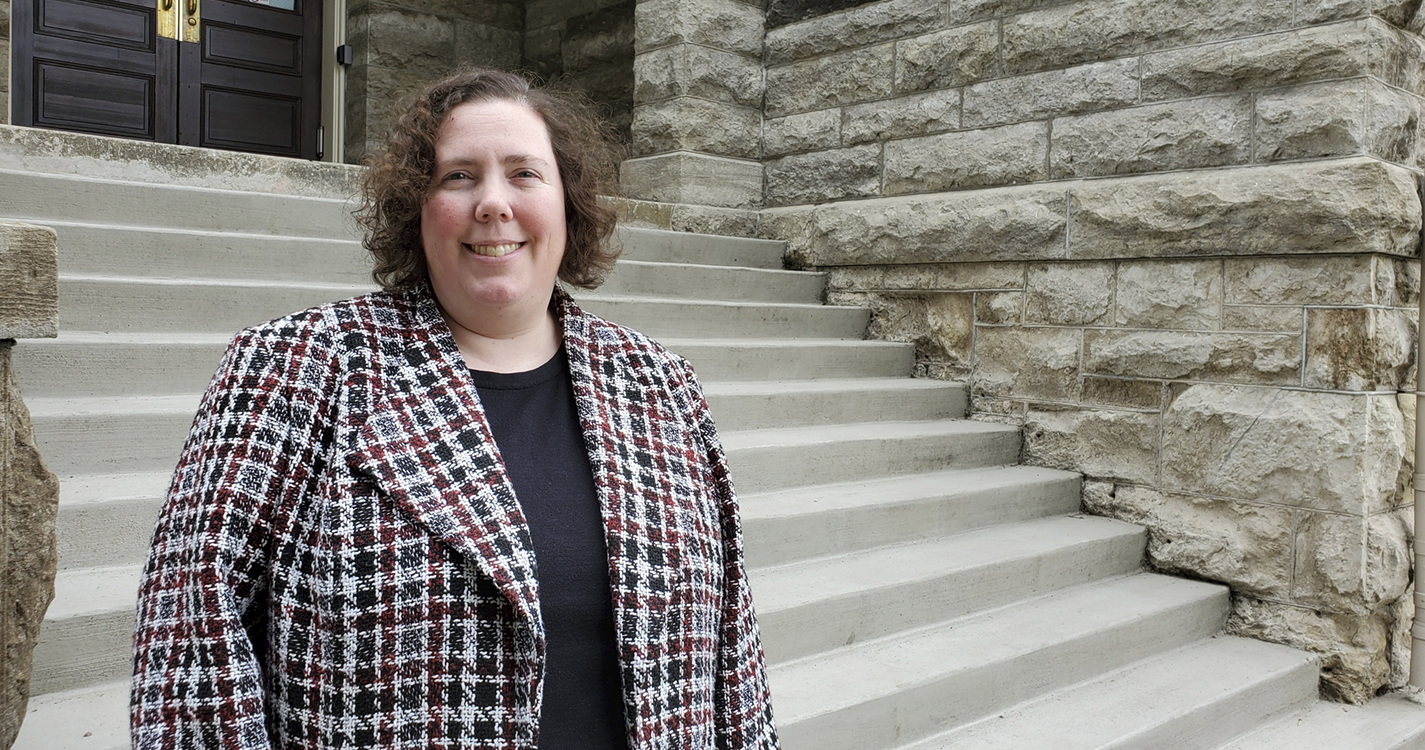Kirsten Parsons became interested in pursuing a law degree at Willamette after moving to Salem four years ago with her wife and children. After attending an open house and participating in a mock class, Parsons was impressed by the school and the environment, "I liked the obvious connections between faculty and students — this was evident even at the open house," says Parsons.
Parsons has a background in math and science and had previously worked in the biology department of a four-year university, which she believes provided a great foundation for pursuing juvenile law. Her interest in pursuing juvenile law came out of the recognition that appropriate intervention can have a significant impact on children's lives.
"Families ought to have the resources and tools to raise their children, and when there's a problem, an intervention that supports both kids and their parents is critical to coming up with a solution," says Parsons "I'm interested in juvenile law because I want to be a part of that solution."
After taking Juvenile Law from the Honorable Judge Norman Hill, Parsons asked if she could do an externship at Polk County, and he agreed. Parsons had the opportunity to work under four judges in Polk County: Judge Hill, Judge Campbell, Judge Caso, and Judge Morse.
"They were great teachers, and I learned a lot," said Parsons "they let me observe just about every aspect of court operations, were friendly and approachable, and always willing to sit and chat. The court staff, especially the Judicial Assistants, were also fantastic. They answered my questions, helped me find information that I needed, and just generally helped me to be successful."
In accomplishing one of her jobs, as a court mediator, Parsons faced one of her biggest challenges. "I am an introvert," said Parsons, "but my job involved walking up to people I didn't know and introducing myself to them. This has never been one of my strengths — it pushed me to the edge of my comfort zone." But from this experience, Parsons says she learned that people were just happy to have someone to talk to about their issues. "It made me realize that a lot of my nervousness about meeting new people and talking to people was an internal obstacle, not an external limitation," said Parsons. The time spent at the Polk County Court has helped Parsons become better at talking to people and develop confidence in her abilities.
Overall, Parsons says she has learned, "that I should love what I do," said Parsons. "Every day of that externship, even on the hard days, I loved it. It was supportive. It was the kind of environment I want to work in." Parsons says through the externship experience, she was able to do some interesting research and develop ideas about areas of law that she had previously not had an interest in.
In the future, Parsons says she is sure more than ever that she wants to work in juvenile law and also has a strong interest in family law. Parsons plans to graduate with her Juris Doctor in 2021.
About Willamette University College of Law
Willamette University College of Law was the first law school to open in the Pacific Northwest. Building on deep historic roots, we focus with pride on educating the next generation of problem-solving lawyers and leaders. Our location in Salem, Oregon, directly across the street from the Oregon State Capitol and Supreme Court, cannot be matched in the region. Our thought-leading scholars advance and promote our shared responsibility to make a difference in society, placing justice, fairness, and equality at the heart of everything we do.
The College of Law produces the best problem solvers, community leaders, legal dealmakers, and changemakers in the most innovative region of the country. We have had several years of remarkable growth in academic achievement, as our bar passage rates and employment outcomes reflect. We also consistently have the highest graduate employment rates among all Oregon law schools, and are among the best on the entire West Coast.
We are a dynamic force within our university’s vision of an “Only at Willamette” education and have worked to develop one of the most forward-thinking and creative legal education programs in the country. Our student-centric approach manifests in the robust experiential learning opportunities we provide alongside curricular strengths in public service, business law, advocacy, international law, and health law.

